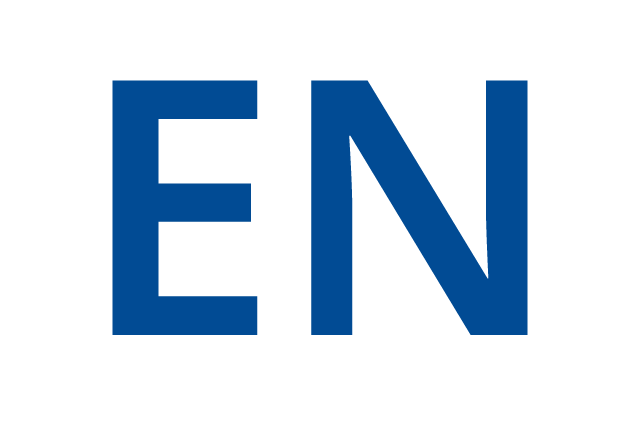
| Données Personnelles | Thématiques de recherche | Charges de cours | Publications |
CHERON Guy



Unités
Unité de recherche en chimie physiologique
Responsable d'Unité : Oui
Constitué dans l'année 1972, au sein du département Laboratoire des Sciences de la motricité de la Faculté Institut des Sciences de la Motricité (ISM), l'unité Unité de recherche en chimie physiologique est l'un des centres de recherche de la faculté qui a pour mission de mener des recherches sur les axes suivants : Métabolisme de la glutamine à l'exercice, Fonctionnement rénal et exercice, Effets de l'âge sur la fonction rénale, à l'exercice., Nutrition du sportif.
NeuroMove - Laboratory of Movement Neurophysiology
The foundation of NeuroMove (Neurophysiology Movement Laboratory) is based on movement as a research focus and as an experimental tool. At the same time, movement is a fundamental human function and, it serves as a unique exploratory probe allowing the investigation of sensori-motor, cognitive, and emotional processes and their mechanisms. By integrating advanced and complementary methodologies, through both peripheral and central physiological signals, we examine the dynamic interactions between the brain and muscles across sensory and motor domains, from perception to action and vice-versa, in a variety of environmental, state-related, and clinical contexts. NeuroMove is composed of four full-time professors, two professors emeriti, fourteen PhD students, one postdoctoral researcher, seven scientific collaborators, and one visiting researcher. The team is supported by three technicians from the faculty. Links : http://www.brainsociety.eu Fonds Leibu
Centre de recherche interdisciplinaire du sport et de l’activité physique
U-IRIS est destiné à fédérer les compétences de recherche existant à l’ULB dans les domaines du sport et de l’activité physique afin de stimuler les collaborations et la recherche interdisciplinaire. La recherche réalisée au sein de U-IRIS pourra être à la base de conseils factuels dans les divers domaines du sport et de l’activité physique. L’ULB et chacun des groupes partenaires de U-IRIS, de même que leurs activités, plateformes, infrastructures et collaborations existantes, gagneront en visibilité, tant interne qu’externe dans un domaine porteur et en pleine évolution. La recherche portée par U-IRIS se veut tant fondamentale qu’appliquée. Elle se développe autour de cinq axes majeurs : - clinique / médecine sportive - sport de haut niveau / performance - revalidation / handicap et sport - sport et société (y compris éducation par le sport) - prévention / santé publique / alimentation. Les groupes participant à U-IRIS représentent les Facultés de Philosophie et Sciences Sociales, de Médecine, de Psychologie et Sciences de l'Education, des Sciences de la Motricité, la Solvay Brussels School of Economics and Management, l’Ecole de Santé Publique, la Cellule Recherche, ULB-Sports et l’Hôpital Erasme.
Projets
Fonctionnement rénal et exercice
Etude des fonctions du rein chez l'homme sain, le patient atteint de néphropathies. Effets de l'exercice et de l'entraînement.
Brain EEG dynamics during spatial navigation
The goal is to investigate the EEG dynamical patterns during active locomotion (using the “Virtual City Locomotion Maze” test developed by Alain Berthoz and his team, Collège de France) and the related abilities such as planning, replanning, visuo-spatial working memory, and inhibition control and to explore the links between such EEG dynamical patterns and behavioral indices (Castilla et al., 2021). Collaboration : Prof. Alain Berthoz
Nutrition du sportif : bilan nutritionnel
Métabolisme de la glutamine à l'exercice
Etude des concentrations plasmatiques en glutamine et acides aminés ramifiés lors d'exercices de longue durée. Implications au niveau de la réponse lymphocytaire.
Study of the neurophysiological markers of performance in high level sportsmen and sportswomen, by the combined analysis of 3D movements of the whole body, eye movements, muscle signals and brain waves during their specific gestures in both team, and individual sports as during previous collaborations with the Red Lions (Belgian national team of hockey) and the Tornados (relay team of the Belgian national athletics team). We are currently interested in Taekwondo martial art. Collaboration : Fondation Cerveau & Société
Effets de l'âge sur la fonction rénale, à l'exercice.
Etude des clearances rénales et de la protéinurie post-exercice chez le sujet âgé sain. Détermination d'un seuil de tolérance.
Biological patterns recognition by Deep Learning models
In joint collaboration between the LNMB and the Machine Learning Group (Computer Science Department, ULB), this doctoral thesis focuses on improving myoelectric prosthesis control using camera-guided neuromuscular pattern recognition by Deep Learning models trained with synchronized EMG, EEG and 3D hand pose estimation during controlled activities in virtual reality. The project also encompasses brain-computer interfaces (BCI) and electrophysiological diagnostic tools (EDT). Collaboration : Prof Guy Cheron & Prof Gianluca Bontempi
Brain function on astronauts on board the International Space Station.
The LNMB has previously shown that brain function and brain states of astronauts onboard the International Space Station can be non-invasively approached through EEG oscillations (Neurocog and Neurospat ESA missions). Microgravity offers an environment where cognitive-affective and sensorimotor functions are continuously challenged. Our purpose is to characterize the influence of weightlessness on the dynamic functional re-organization of the brain.

